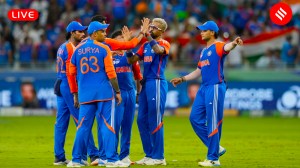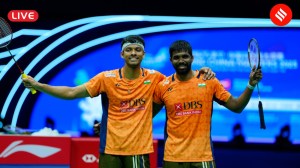The Court must fill the void
The Election Commission’s decision to implement the recent Supreme Court judgment to make information about criminal background of cand...

The Election Commission’s decision to implement the recent Supreme Court judgment to make information about criminal background of candidates available to voters, has stirred a hornet’s nest. It has been alleged that the Supreme Court and the Election Commission (EC) have transgressed into the legislative arena. Each organ of the state must perform its assigned role properly for a democracy to function. Since it is impractical to expect all the constituents of a multiple-component system to function optimally all the time, it is necessary to provide checks and balances so that some components compensate for the sub-optimal performance of others. This will ensure that the democratic system as a whole continues to perform at acceptable, and progressively enhanced, levels.
In its May 2, 2002 judgement, the Supreme Court has recognised, accepted, and respected the legislature’s right to make laws. However it has also maintained that ‘‘if the field meant for legislature and executive is left unoccupied detrimental to public interest, this Court has ample jurisdiction under Article 32 read with Articles 141 and 142 of the Constitution to issue necessary directions to the Executive to subserve public interest’’. The Court has, thus, merely filled ‘‘the void, in absence of suitable legislation’’ pending action by the legislature. In addition, it has also been guided by the principle of the voters’ right to information about the candidates. The EC has acted well within its mandate and within the Supreme Court’s directives.
The issue has been reviewed four times by statutory institutions of the state to come to the present stage. The first review was when a group of concerned citizens (Association of Democratic Reforms) filed a public interest litigation in the Delhi High Court in December 1999, requesting that information on criminal antecedents of candidates contesting elections be made available to voters so that they can make an informed choice while voting. The high court took the views of the Government of India into consideration before pronouncing its judgment on November 2, 2000. The second review happened when the Union of India filed a special leave petition in the Supreme Court against the high court judgement although the high court had issued directives only to the Election Commission and not to the Government of India. During the second review, several political parties also became ‘‘intervenors’’ and presented their views to the Supreme Court. After taking all the views into consideration, the Supreme Court, in its broad mindedness, admitted the special leave petition.
|
The Court has been guided by the principle of the voters’ right to information about the candidates. The EC has acted well within its mandate |
The third review was during the hearing of the special leave petition when the government made forceful submissions through the highest legal functionaries in the land, like the attorney general and solicitor general of India, and the political parties put forth their views through eminent lawyers. The Supreme Court pronounced its judgement after considering all the views, including the possibility of encroachment of legislative turf.
Subsequently the matter went through the fourth level of review, this time by a different and independent statutory organ of the state, namely, the Election Commission of India. The EC first approached the government because it thought that ‘‘the most efficacious manner’’ of implementing the judgement would be for the government to amend the nomination forms that candidates are required to file for contesting elections. The EC acted on its own only after it was informed by the government that it will not be able to complete the action within the time limit prescribed by the Supreme Court. An issue that has been considered by the statutory organs of the state on four different occasions, and has been found worthy of implementation, must have some merit.
Past experience shows that declaration of intentions by the government to enact legislation after developing a consensus amongst all political groupings often lead to no action and, at times, are even used to thwart well-intended actions. It has been more than 25 years since Explanation 1 was inserted in Sub Section (1) of Section 77 of the Representation of People Act which enabled unaccounted money to be brought into the election system by maintaining that expenditure incurred or authorised by any one other than the candidate — including the political party, and friends and supporters of candidates — will not be counted as the election expenditure of the candidate. There has been widespread comment on this issue for more than 25 years now but Parliament has not found time to rescind the amendment. It is against this background that the Supreme Court has moved to fill the gap in legislation.
While the supremacy of Parliament is not in doubt, it needs to be remembered that it derives its supremacy from the Constitution and the ‘people of India’. In the final analysis, it is the ‘people of India’ who are supreme and the members of Parliament are elected to carry out their wishes. One indication of the people’s desire came through in a newspaper poll on November 4, 2000 soon after the Delhi high court judgement.
The question was: will providing criminal records of aspiring MPs check criminalisation of politics? Seventy nine per cent of those who responded said ‘yes’. This is an attempt by concerned citizenry to influence what affects them and the governance of the country vitally. Therefore one hopes that the political establishment will be gracious enough to accept, and honour, the will of the people of India when they discuss this issue in the forthcoming all-party meeting.
(The writer is professor and dean, IIM, Ahmedabad)
Photos



- 01
- 02
- 03
- 04
- 05




























